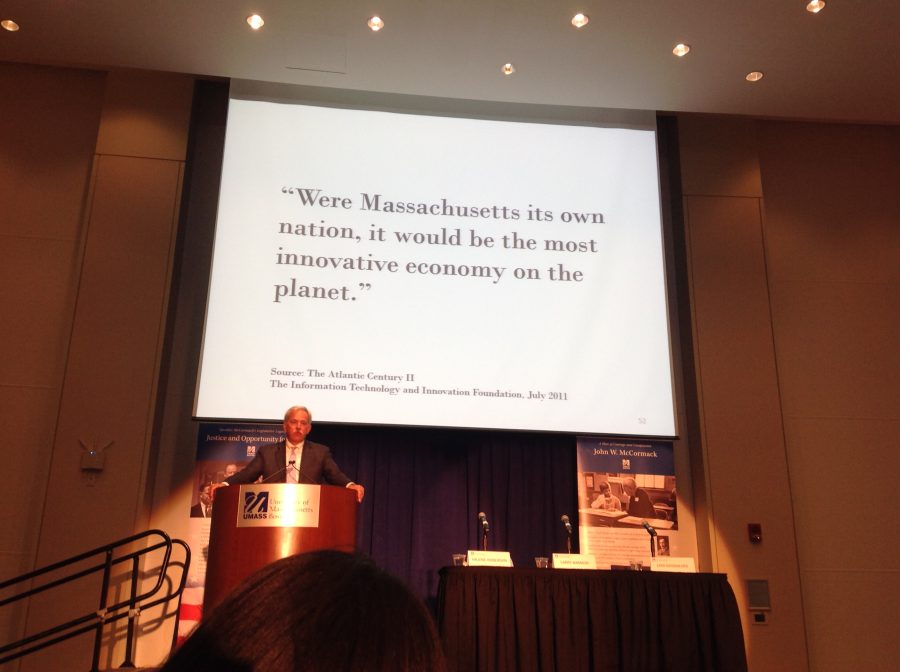On April 23 the John W. McCormack Graduate School of Policy and Global Studies hosted a public lecture titled “Where Boston Can Lead: The Urban Education Crisis and What to Do About It.” The purpose of this event was to bring together voices from education and enable them to have a public discussion on the issues that American education faces and to propose remedies to fix them.
The event’s keynote speaker was Paul S. Grogan, who is also this year’s Robert C. Wood’s Visiting Professorship Lecturer in Public and Urban Affairs. Grogan is the President and CEO of the Boston Foundation which distributed over $98 million to nonprofit organizations throughout the Greater Boston community in 2013. The event also featured remarks from New Hampshire Governor Maggie Hassan (who the New York Times listed as a potential vice presidential ticket for the next election), comments from Chancellor Motley, and introductions from Dean Ira Jackson.
One topic up for discussion was the completion of high school, entering into a university, as well as how to complete a university’s requirements. According to Grogan, Boston is making national records due to its nationally low drop-out rate of only 4.5 percent.
Grogan also cited other statistics illustrating the issue of education. According to Cities in Crisis 2009, 1.2 million students drop out each year, 7,000 each day, and one every 26 seconds nationwide. “In our knowledge economy, failing to graduate amounts to a kind of economic suicide,” Grogan stated.
Alex Moffatt, a sophomore majoring in History with aspirations of becoming an educator, attended this event and learned a lot from the program. According to Moffatt, “education is important and needs more attention; and the problems it faces can’t be solved by just throwing money at them, extending school days, or some other archetypal fixes. Educators need to start thinking outside of the box when it comes to student performance and education administrators should be seeking out exemplary teachers.”
“At the event, the charter schools that were presented seemed to be excelling at rapid rates,” Moffatt also noted. ”They had more leeway with their curriculum and were able to adapt to student’s areas of academic weaknesses and strive to improve them.”
To learn more about where Urban Education is and where it’s going, watch the whole discussion on UMass Boston’s YouTube channel at: http://www.youtube.com/watch?v=VUOHN5BkZCg.
Public lecture on urban education comes to campus
April 25, 2014

